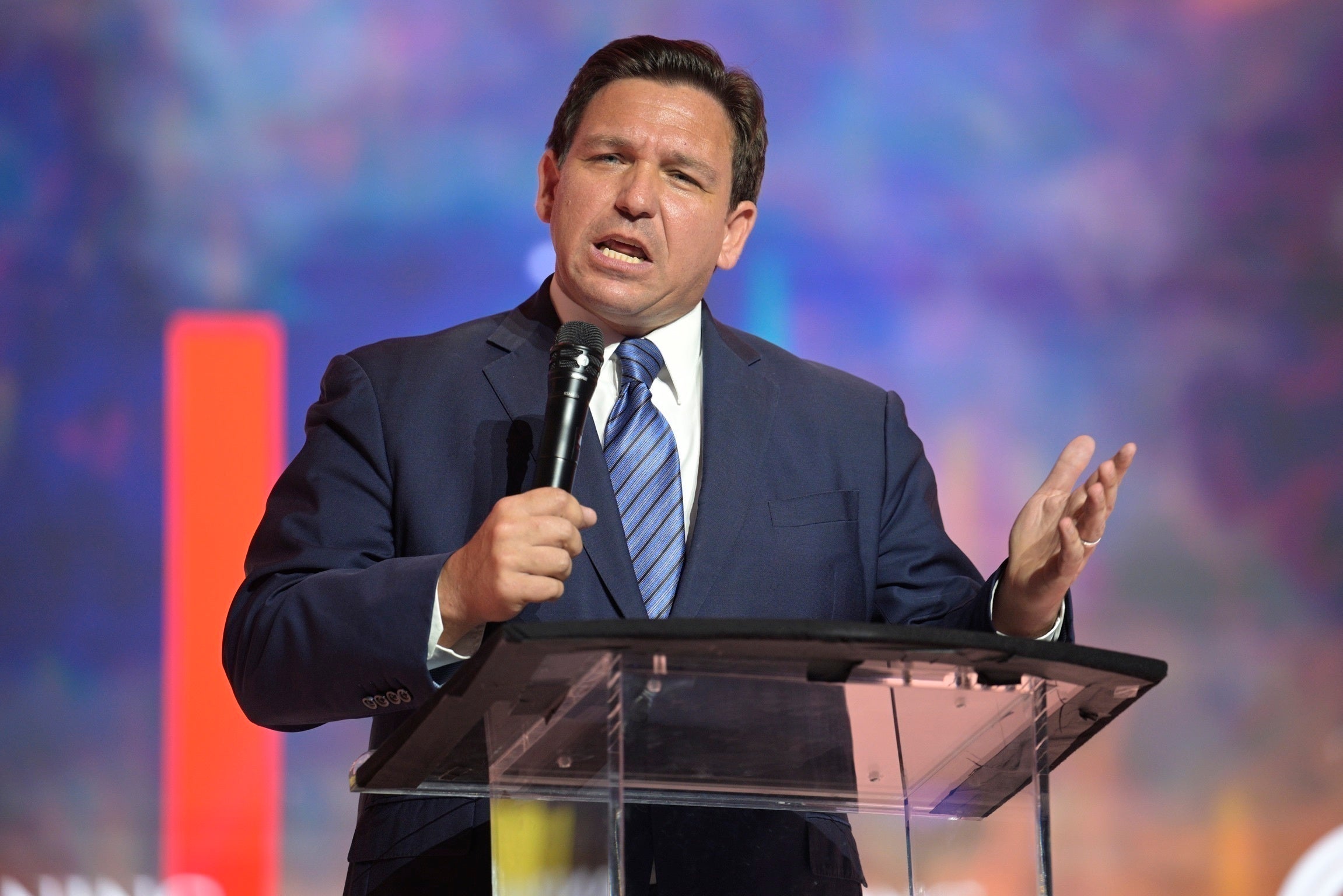DeSantis' election crimes arrests confuse some suspects
Newly released police bodycam footage shows that three of the 20 people who were arrested in Florida for allegedly voting illegally in the 2020 election appeared to be surprised that they had done anything wrong

Your support helps us to tell the story
From reproductive rights to climate change to Big Tech, The Independent is on the ground when the story is developing. Whether it's investigating the financials of Elon Musk's pro-Trump PAC or producing our latest documentary, 'The A Word', which shines a light on the American women fighting for reproductive rights, we know how important it is to parse out the facts from the messaging.
At such a critical moment in US history, we need reporters on the ground. Your donation allows us to keep sending journalists to speak to both sides of the story.
The Independent is trusted by Americans across the entire political spectrum. And unlike many other quality news outlets, we choose not to lock Americans out of our reporting and analysis with paywalls. We believe quality journalism should be available to everyone, paid for by those who can afford it.
Your support makes all the difference.Newly released police bodycam footage shows that three of the 20 people who were arrested in Florida for allegedly voting illegally in the 2020 election appeared to be surprised that they had done anything wrong.
The recordings, made by local police and obtained by the Tampa Bay Times, were published after Republican Gov. Ron DeSantis in August announced charges against the suspects as the first major public move of his controversial election police unit.
DeSantis said the people targeted had been convicted of murder or a felony sexual offense and therefore were not eligible to vote under a 2018 constitutional amendment that restores voting rights to some felons. The 20 people were among more than 11 million Florida voters who cast ballots in the 2020 election, leading critics of DeSantis to renew accusations that the election police force would serve as a political tool for the governor.
The 20 people who were arrested — despite their prior convictions — were able to register to vote, leading them to apparently believe they could legally cast ballots, according to court records. At least part of the confusion stems from language in the voter registration forms that requires applicants to swear that they are not a felon, or if they are, that they have had their rights restored. The forms do not inquire specifically about past convictions for murder and felony sexual assault.
In one of the bodycam videos, 55-year-old Romona Oliver exclaimed “Oh my God” when officers explained she was being arrested for voter fraud
“Voter fraud?” she said. “I voted, but I ain’t commit no fraud.”
Oliver was convicted of second-degree murder in December 2000, but eventually registered to vote, was given a voter registration card and cast a ballot in the 2020 Election, court records show.
In another video, Nathan Hart, convicted of a felony molestation charge in 2006, told officers that someone at the “driver's license place” encouraged him to register to vote.
“He said, 'Well, just fill out this form, and if they let you vote, then you can,’” Hart, 49, told officers. “‘If they don’t, then you can’t.’”
An officer arresting Hart replied, “Then there's your defense,” adding “that sounds like a loophole to me.”
In the third video obtained by the Tampa Bay Times, Tony Patterson expressed continued confusion over why he was being arrested, telling officers “I thought felons were able to vote.”
“Why would you let me vote if I wasn't able to vote,” he said.
Patterson was convicted in 2005 of a felony sex crime with a victim under the age of 16, according to court records. In October 2019, he completed a voter registration form affirming that “I am not a convicted felon, and if I am, my right to vote has been restored.”
Patterson told law enforcement, according to an affidavit on the voter fraud charges, that he received a mail ballot and letter in the mail stating he was eligible to vote. He filled his ballot out and mailed it in October 2020.
Neil Volz, deputy director of Florida Rights Restoration Coalition, said Florida should have a proper voter verification system to screen potential voters before they register to vote, as he said other states have.
“If we had a voter verification system on the front end, we wouldn’t see anybody being arrested,” Volz said. “If we can have assurances on the front end, then we don’t see arrests on the back end.”
Volz said his group had been in touch with many of the 20 to offer help in paying bail and finding legal counsel.
Volz said the arrests could have a chilling effect on other felons who are eligible to vote but are unsure if they're allowed, saying their default decision would be to sit out the voting.